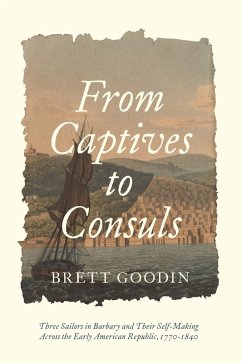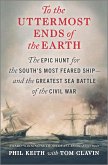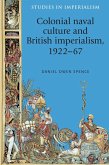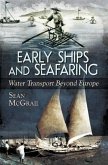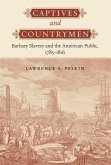How three white, non-elite American sailors turned their experiences of captivity into diverse career opportunities-and influenced America's physical, commercial, ideological, and diplomatic development.Winner of the John Lyman Book Award by the North American Society for Oceanic HistoryFrom 1784 to 1815, hundreds of American sailors were held as "e;white slaves"e; in the North African Barbary States. In From Captives to Consuls, Brett Goodin vividly traces the lives of three of these men-Richard O'Brien, James Cathcart, and James Riley-from the Atlantic coast during the American Revolution to North Africa, from Philadelphia to the Louisiana Territories, and finally to the western frontier. This first scholarly biography of American captives in Barbary sifts through their highly curated writings to reveal how ordinary individuals in extraordinary circumstances could maneuver through and contribute to nation building in early America, all the while advancing their own interests. The three subjects of this collective biography both reflected and helped refine evolving American concepts of liberty, identity, race, masculinity, and nationhood. Time and again, Goodin reveals, O'Brien, Cathcart, and Riley uncovered opportunities in their adversity. They variously found advantage first in the Revolution as privateers, then in captivity by writing bestselling captivity narratives and successfully framing their ordeal as a qualification for coveted government employment. They even used their modest fame as ex-captives to become diplomats, get elected to state legislatures, and survey the nation's territorial expansions in the South and West. Their successful self-interested pursuit of opportunities offered by the expanding American empire, Goodin argues, constitutes what he calls "e;the invisible hand of American nation building."e;Goodin shows how these ordinary men, lacking the genius of a Benjamin Franklin or Alexander Hamilton, depended on sheer luck and adaptability in their quest for financial independence and public recognition. Drawing on archival collections, newspapers, private correspondence, and government documents, From Captives to Consuls sheds new light on the significance of ordinary individuals in guiding early American ideas of science, international relations, and what it meant to be a self-made man.
Dieser Download kann aus rechtlichen Gründen nur mit Rechnungsadresse in A, B, BG, CY, CZ, D, DK, EW, E, FIN, F, GR, HR, H, IRL, I, LT, L, LR, M, NL, PL, P, R, S, SLO, SK ausgeliefert werden.

